The Fallon City Council approved a three-year collective bargaining agreement with the Fallon Peace Officers Association at its June 27 special meeting. Don Lattin, the attorney who represented the city during negotiations, told the council the agreement includes phased pay hikes along with two additional changes from previous contracts.
During the first year, union members will not receive a pay raise, but they will receive a 2% boost in the second year and a 3% jump in the third year. Lattin said union members were willing to forego a salary adjustment for fiscal year 2025–26, since the city’s contributions to the Nevada Public Employees’ Retirement System (PERS) are set to climb by 8.75% for police officers.
In 2025, Nevada PERS contribution rates are climbing for both employer and employee groups. Regular members will see their contribution rate increase from 17.5% to 19.25%, while Police/Fire members will experience a hike from 25.75% to 30%.
Employer contributions are also jumping, with rates for regular employees climbing from 33.5% to 36.75%. Police/Fire contribution rates are surging from 50% to 58.75%. These changes took effect July 1.
Lattin also noted the new agreement calls for a shift differential of 8% for officers working between 6 p.m. and 6 a.m. The final major revision in the contract addresses the types of training courses eligible for reimbursement. Lattin said officers expressed interest in more physical defense–style courses, as well as college courses required to complete a career-related degree. Course selection and tuition reimbursement will be pre-approved by the police chief.
Lastly, the agreement adds Juneteenth to the list of recognized paid holidays. The finalized collective bargaining agreement is available on the city’s website under Meeting Minutes and Agendas in the June 27 special meeting agenda packet.
In other business, the council approved the augmentation of several funds, as required by Nevada Revised Statutes at the fiscal year end. Accounts augmented include the General Fund, the Convention & Tourism Authority Fund, the Airport Fund, the Mayor’s Youth Fund, the Electric Enterprise Fund, the Water Enterprise Fund, the Sewer Enterprise Fund, the Sanitation Enterprise Fund, the Landfill Enterprise Fund, the Water Treatment Enterprise Fund, the Water Treatment Reserve Fund, the Data Processing Internal Service Fund, and the Public Works Internal Service Fund.


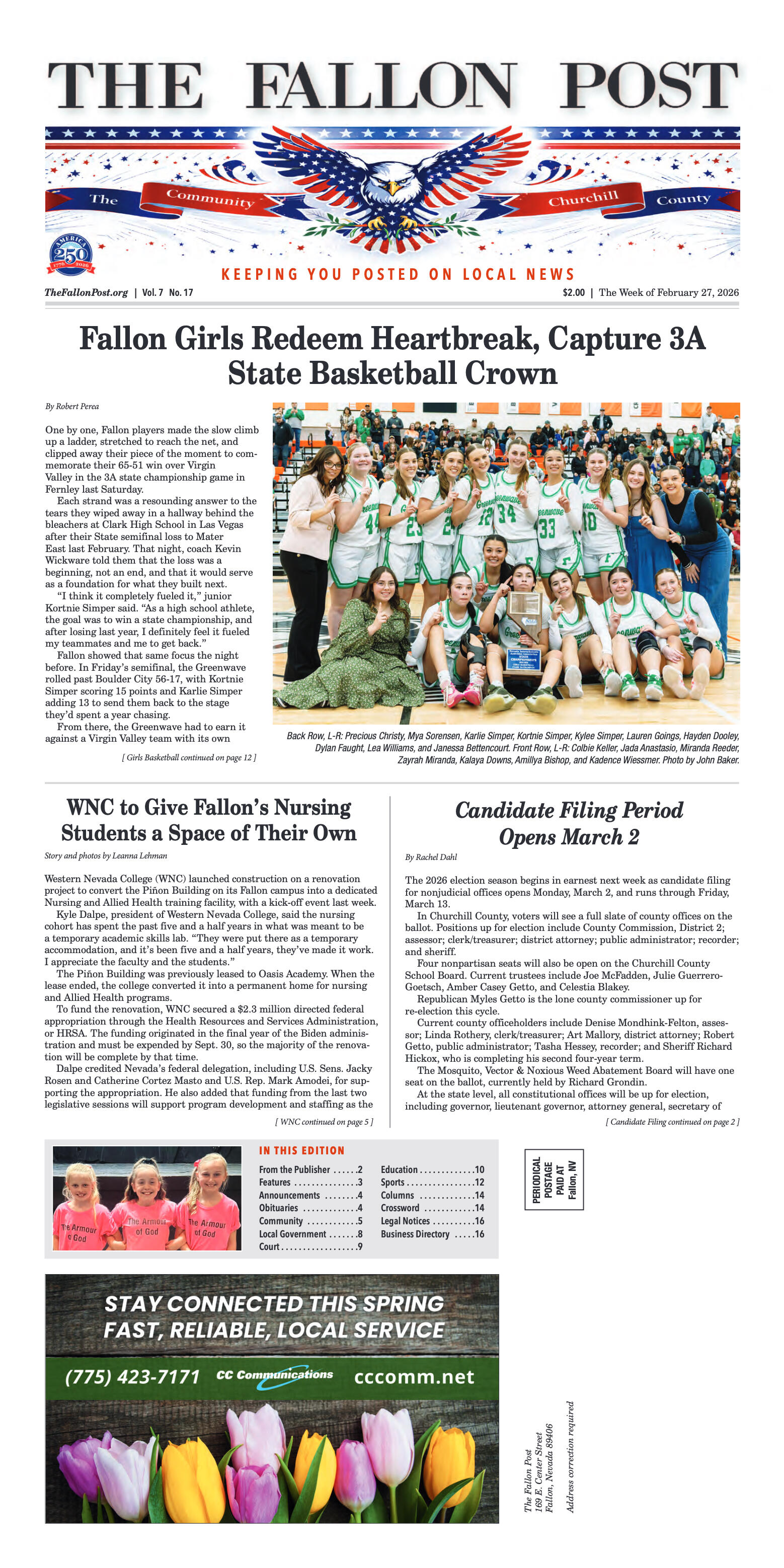
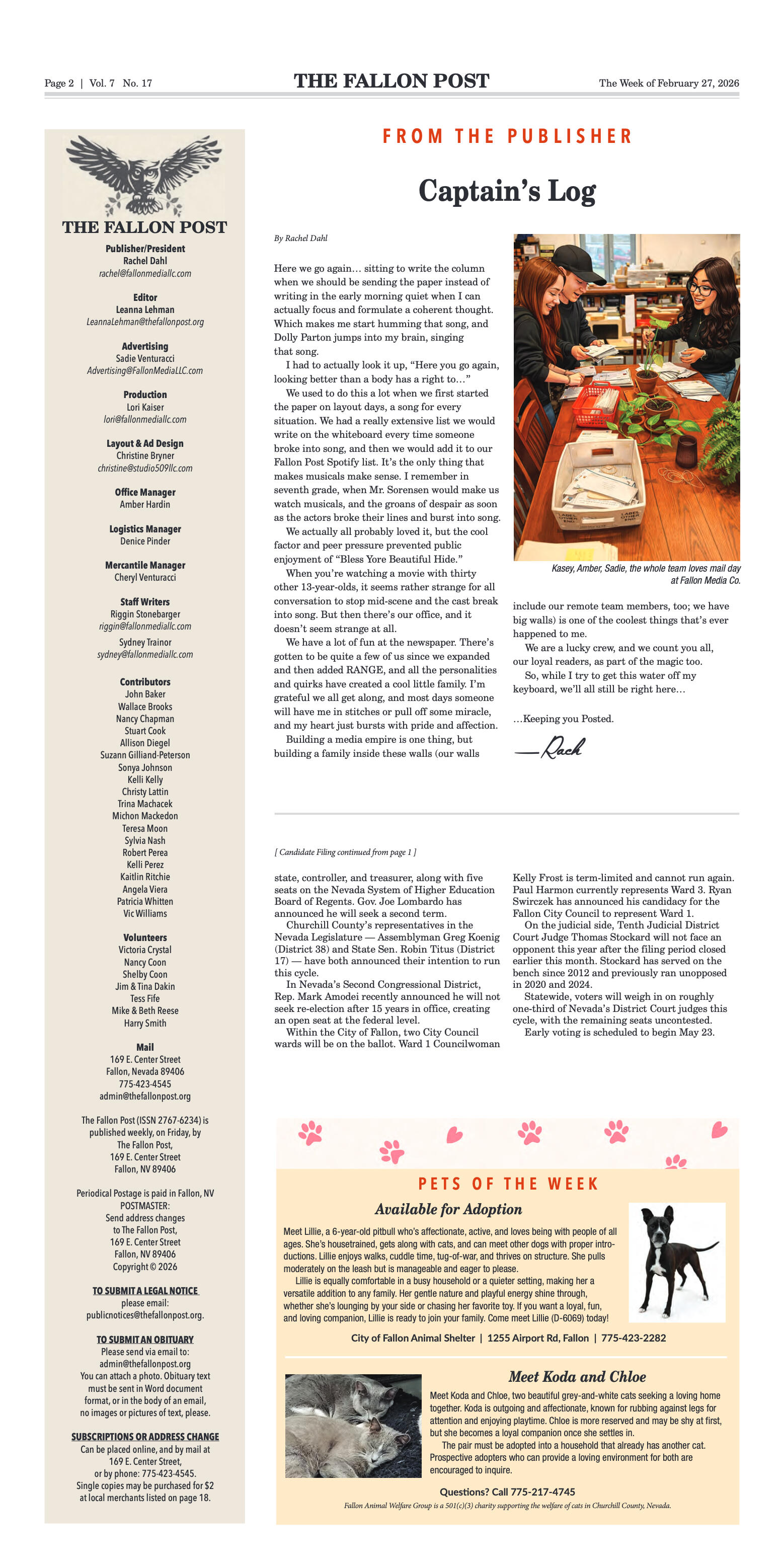
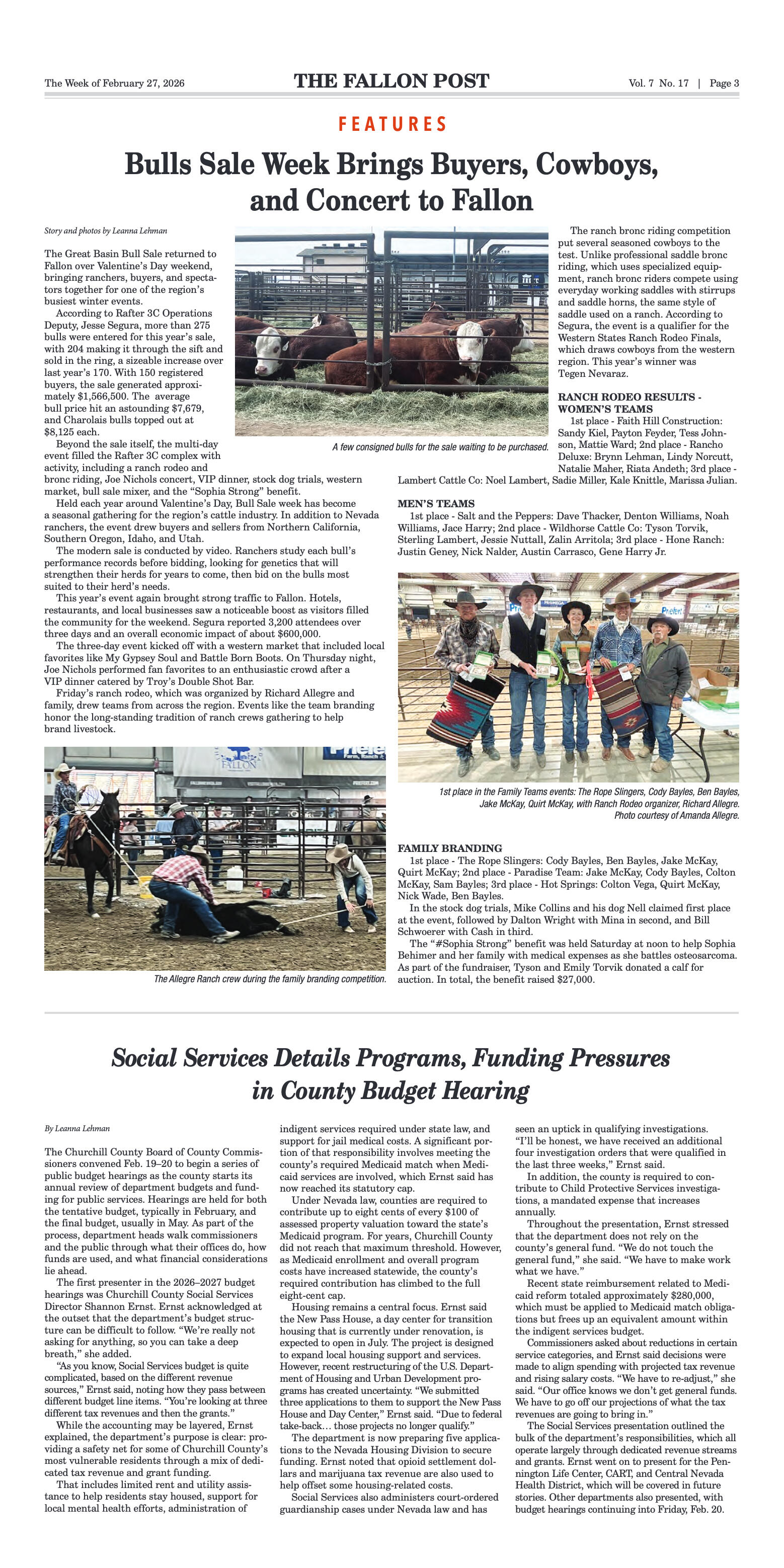
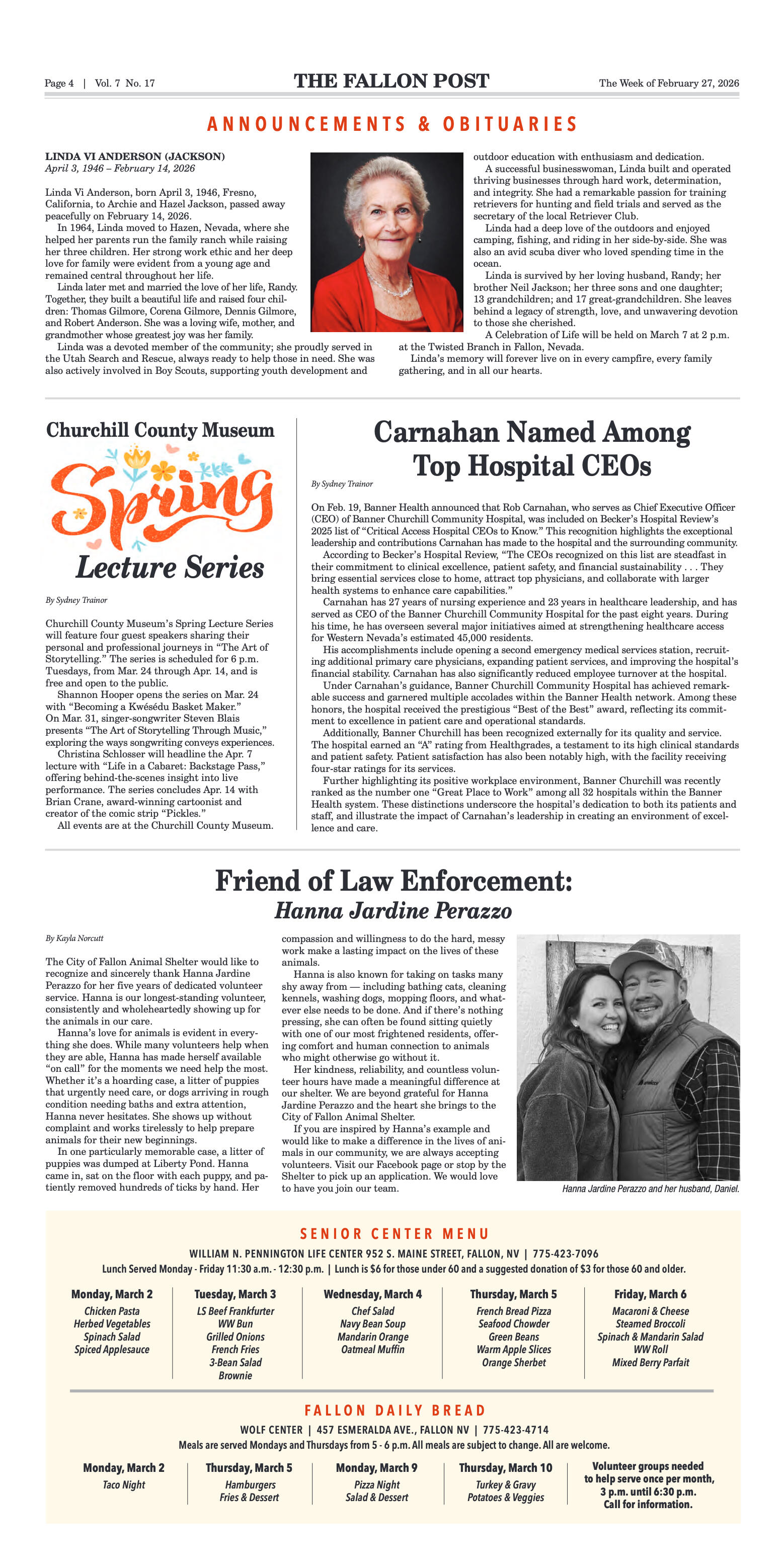
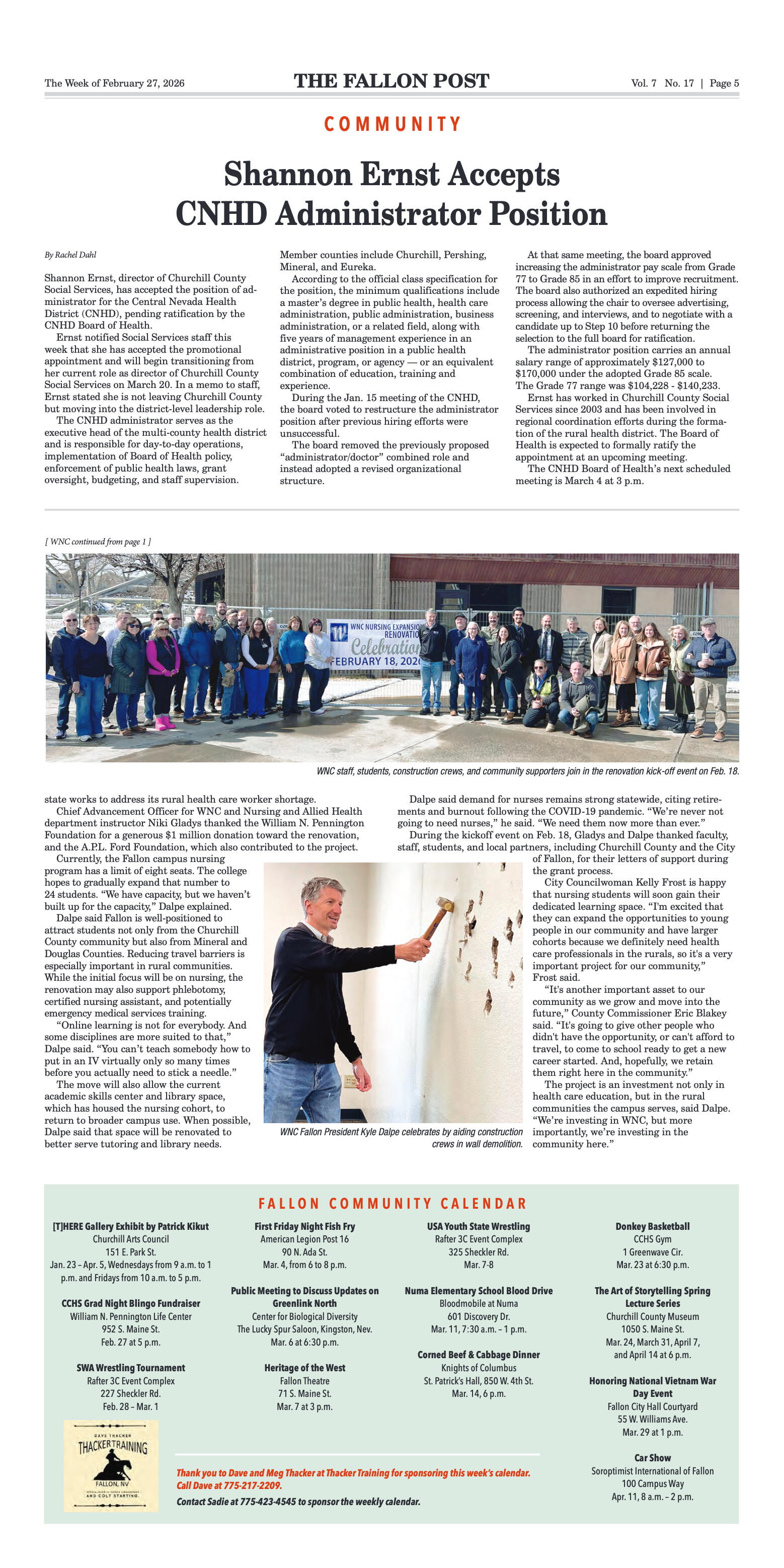
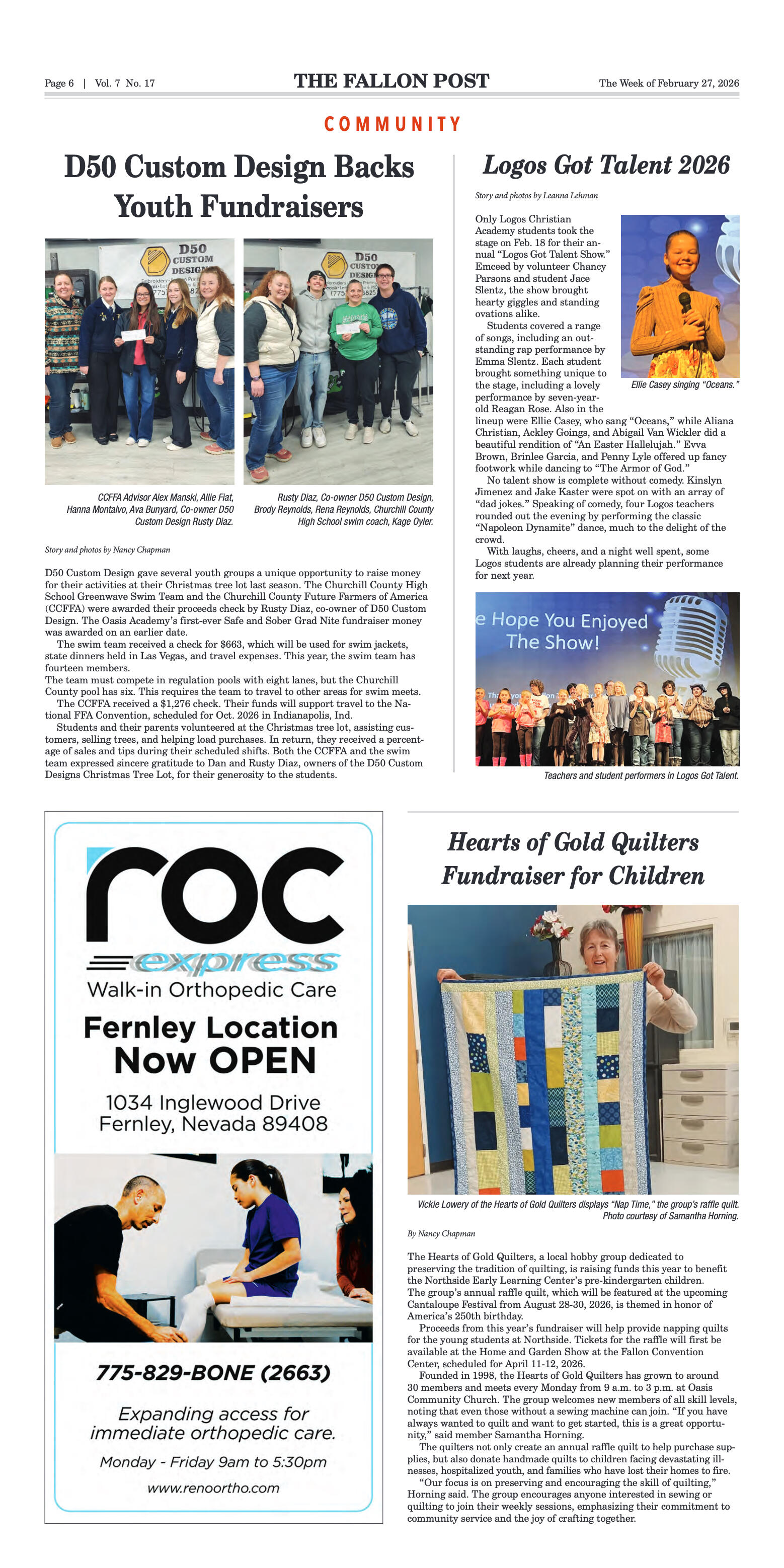
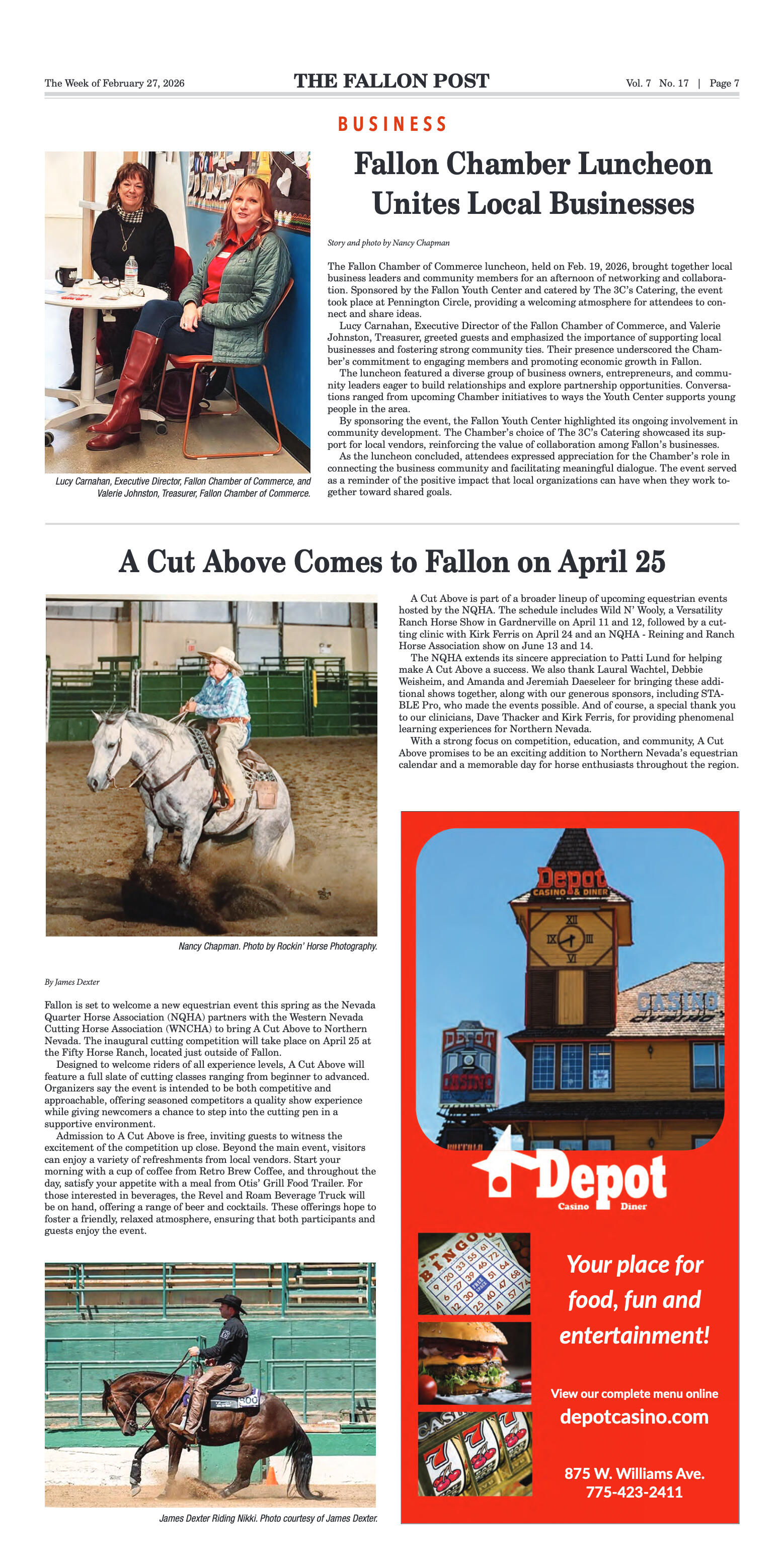
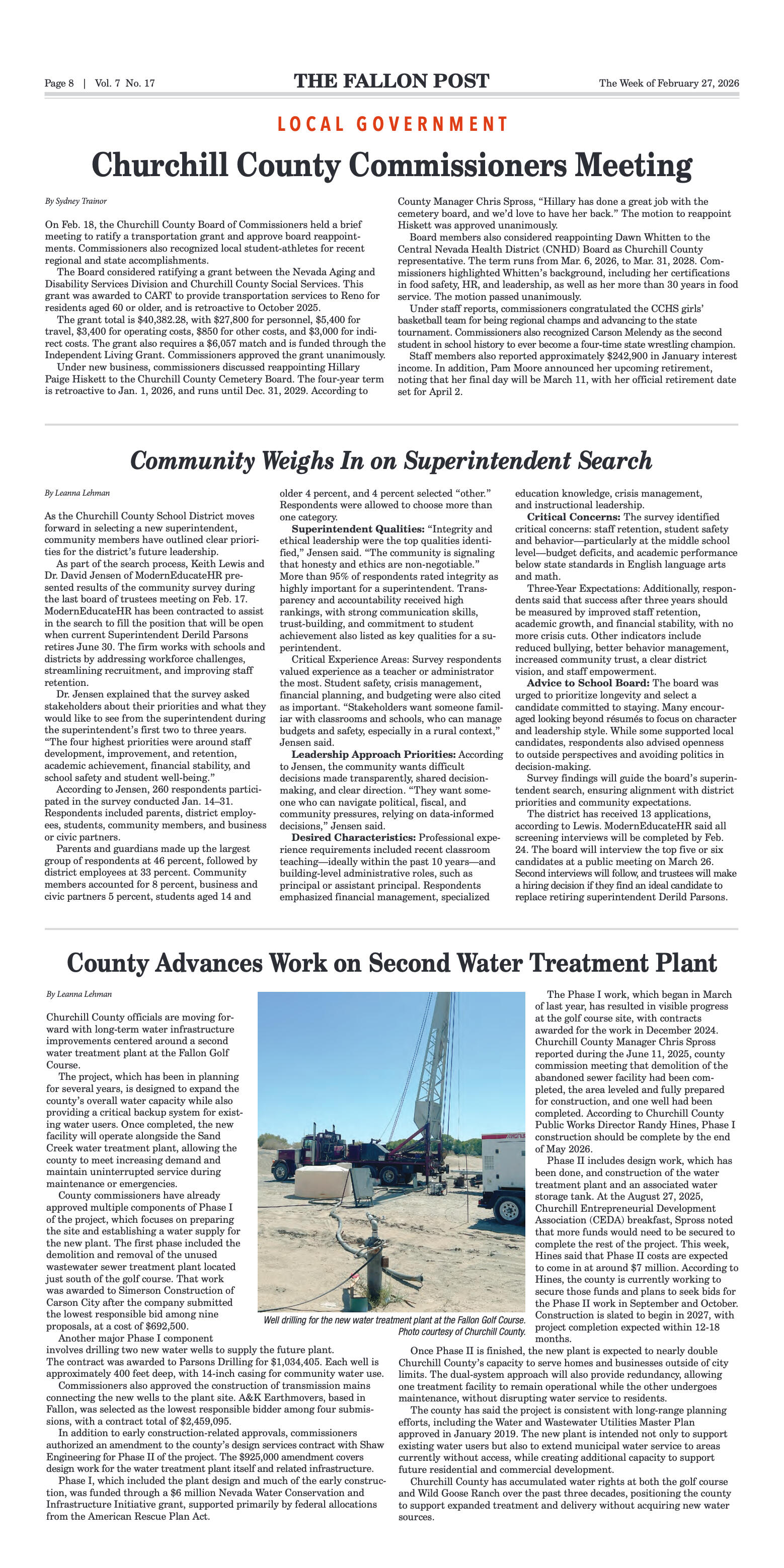
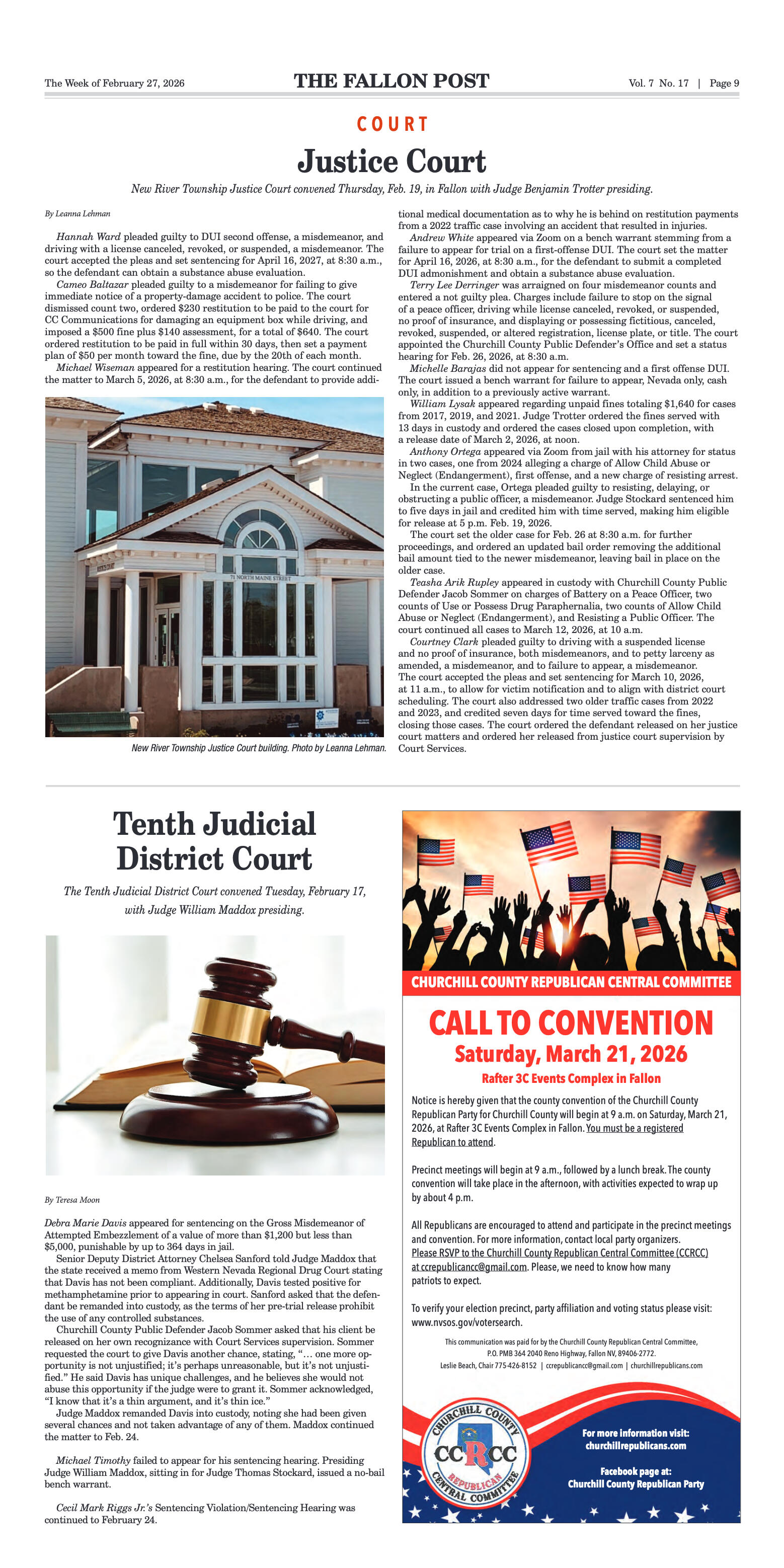
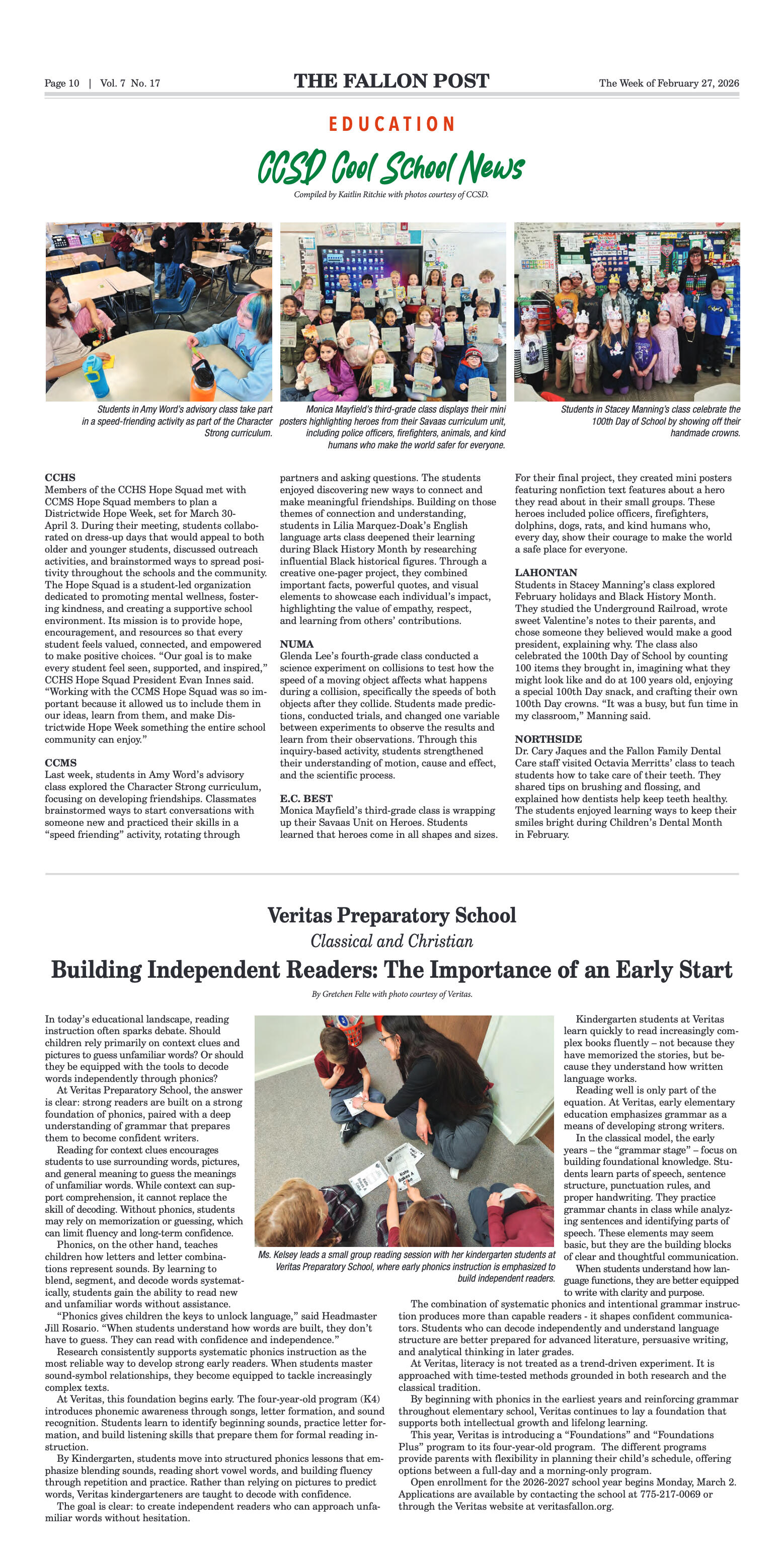
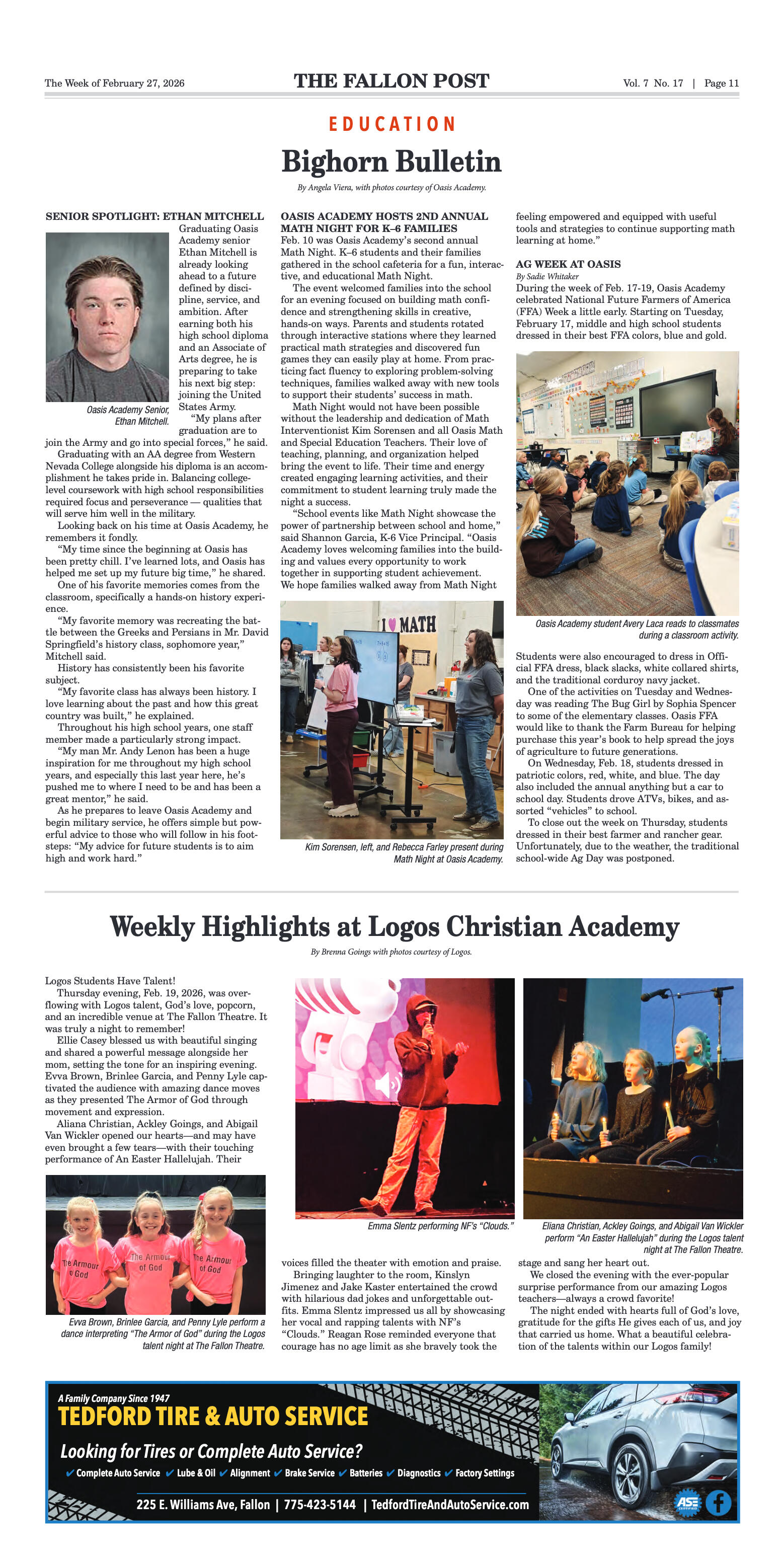
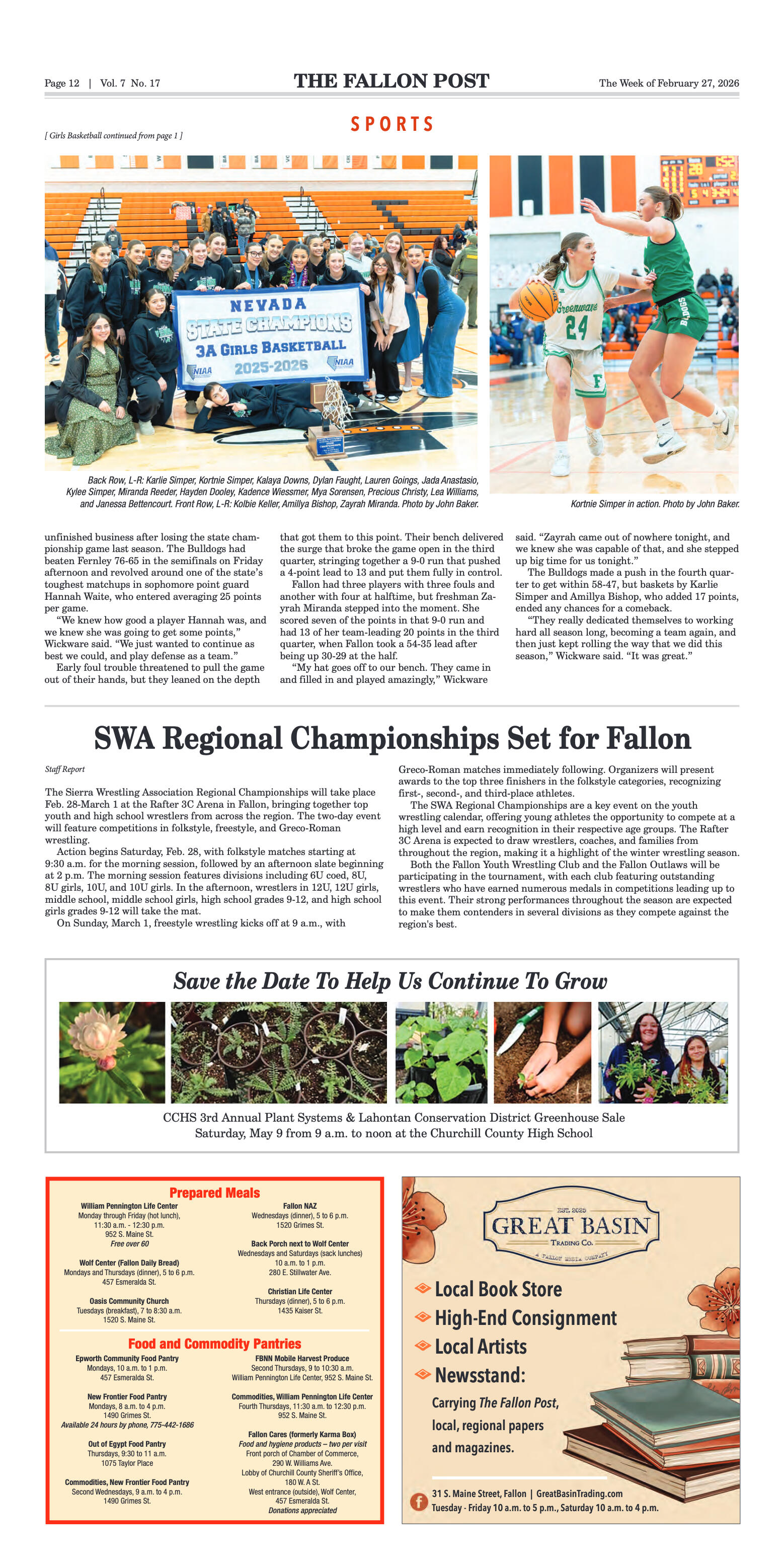
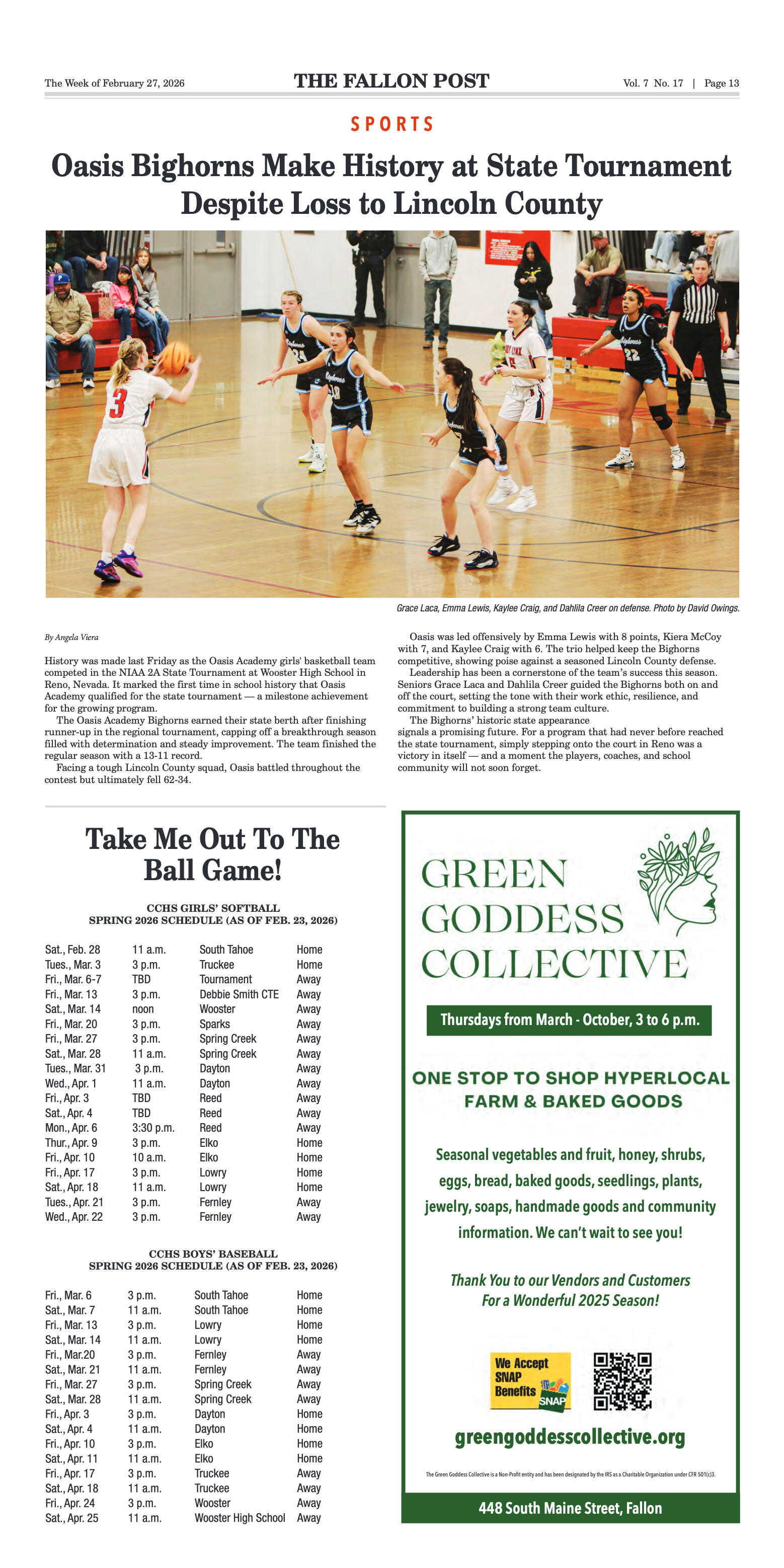
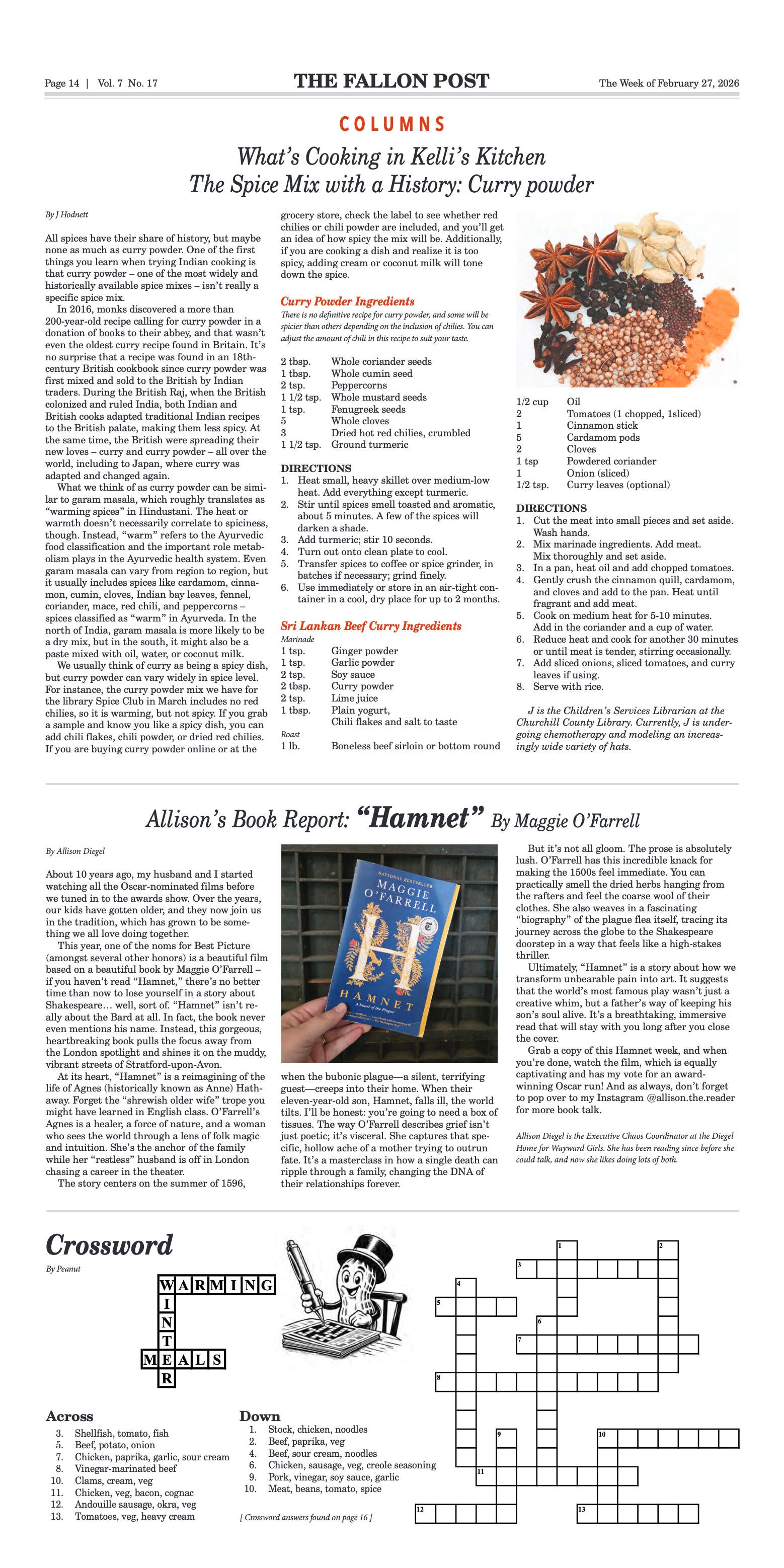
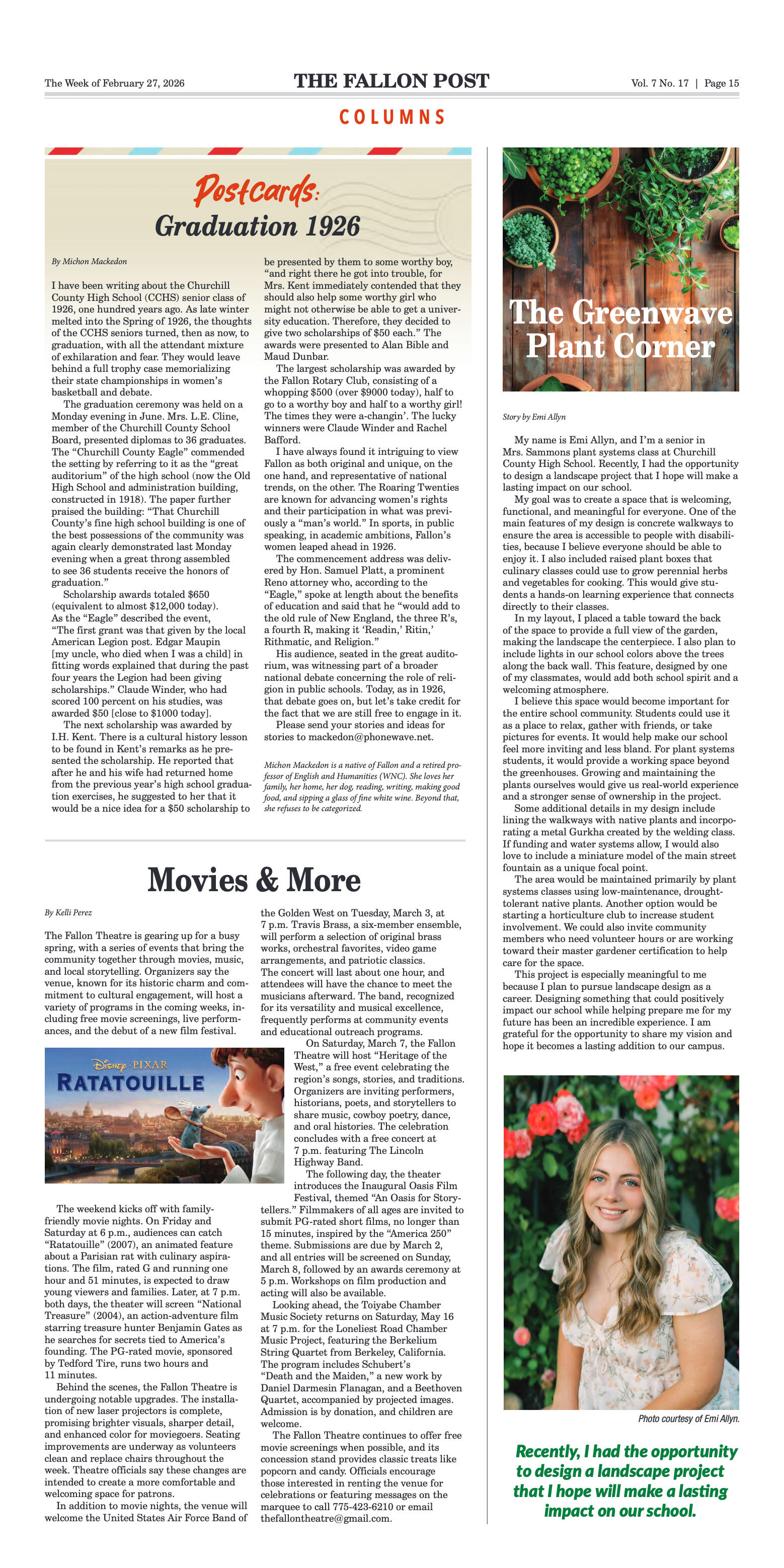
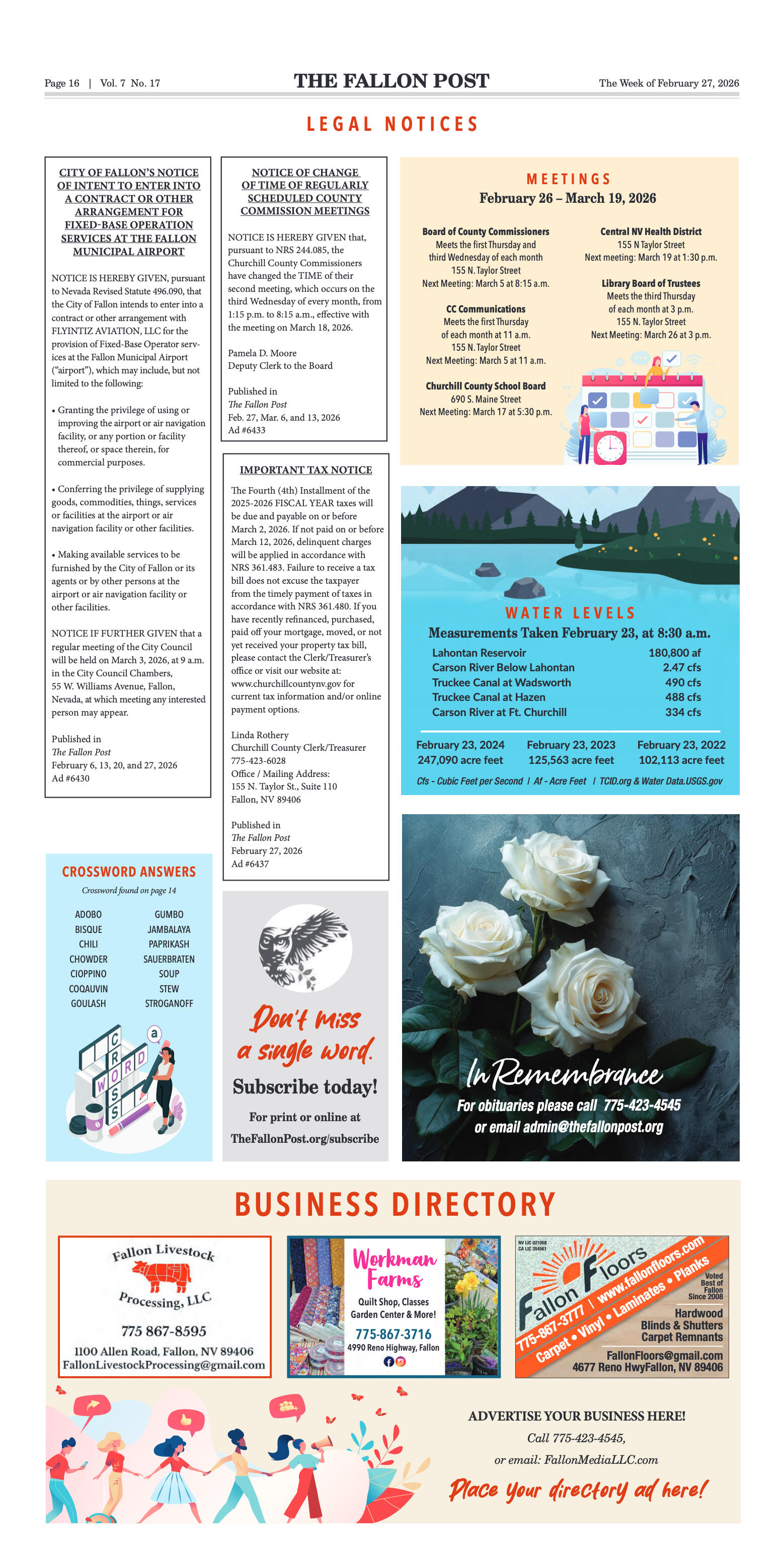























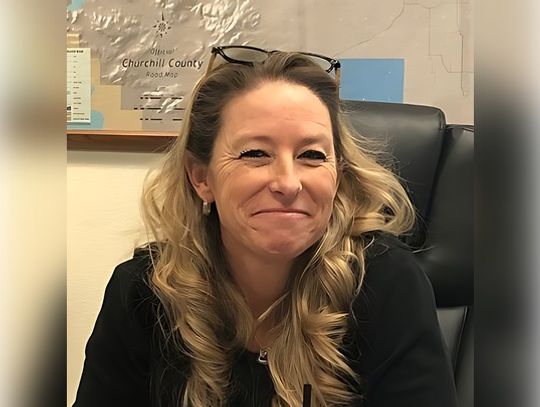


Comment
Comments